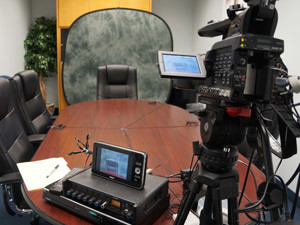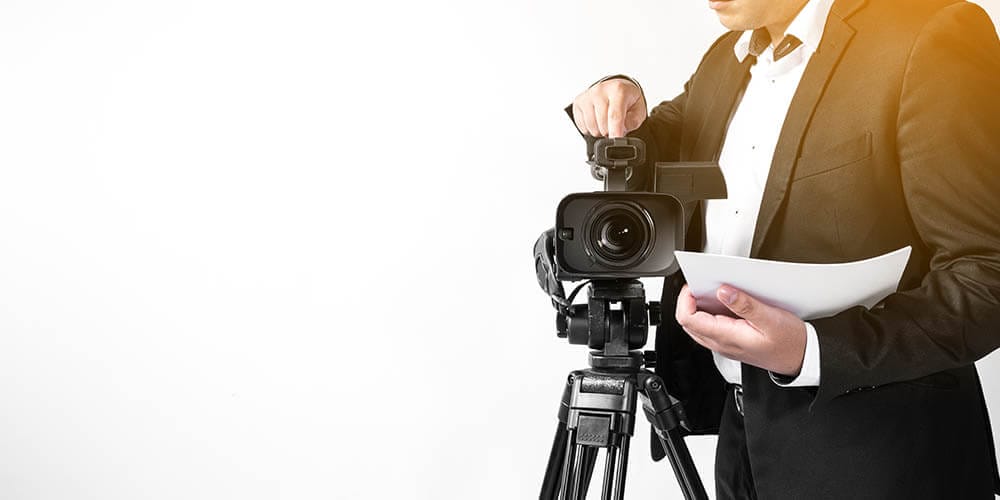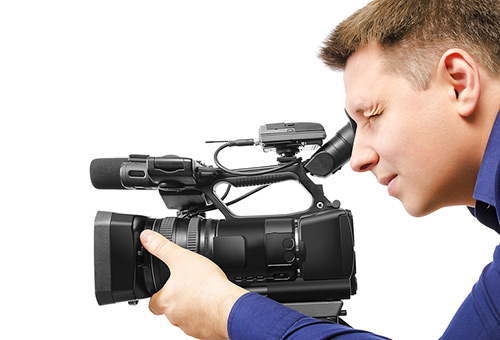The Function of Lawful Videography in Depositions and Trials
Lawful videography has actually become an important tool in both depositions and trials, offering a complex technique to recording witness statements. By catching not only the talked word yet additionally the subtleties of non-verbal interaction, this tool improves the trustworthiness of statements and protects important proof for future process (legal videography). As lawful experts increasingly recognize its worth, it prompts a much deeper exam of just how these aesthetic records can affect juror understandings and trial outcomes. What ramifications might these growths hold for the future of lawful practice?

Relevance of Legal Videography
Lawful videography plays a pivotal role in the documentation and presentation of depositions and tests. This customized field combines technological skills with lawful understanding to create a trusted document of proceedings that can dramatically influence case end results. The appearance of legal videography boosts the understanding of witness statement, enabling jurors and courts to observe not just the spoken words but also the attitude, emotions, and body movement of the witnesses.
On top of that, lawful videography provides an objective account of occasions, lessening the capacity for misinterpretation that can accompany composed transcripts alone. This aesthetic paperwork acts as a crucial device during test discussions, facilitating a more clear and even more convincing story for both plaintiffs and defendants. The ability to replay video sections throughout court process enables legal teams to highlight key factors, enhancing their debates successfully.
The value of legal videography expands beyond the court room; it also plays an important role in maintaining proof for future referral, whether for allures or additional lawful action. Thus, its integration right into the legal procedure is necessary for making certain a reasonable and exact representation of the realities, eventually adding to the search of justice.

Refine of Legal Videography
While capturing the subtleties of depositions and tests, the process of legal videography involves numerous essential steps that ensure high-quality, precise recordings. A specialist lawful videographer prepares by assessing the instance products and understanding the particular needs of the deposition or test. This prep work includes acquainting themselves with the participants and the context, which helps in recording important information.
On the day of the recording, the videographer establishes the required devices, which commonly includes high-def cams, microphones, and appropriate lights. Guaranteeing optimum angles and sound high quality is vital, as it straight influences the efficiency of the recording. The videographer interacts with lawyers and participants to establish protocols, making certain that every person recognizes the recording procedure.
Throughout the deposition or trial, the videographer meticulously records the proceedings, paying attention to both verbal and non-verbal hints. This includes recording the behavior and reactions of witnesses and attorneys. After the session ends, the videographer may modify the video footage for clearness and conformity with lawful standards, generating an end product that precisely shows the proceedings for future recommendation and usage in lawful contexts.
Benefits in Depositions
The unification of videography in depositions provides numerous advantages that improve the total process of gathering evidence. One key Full Article benefit is the ability to record witness statements with visual and acoustic fidelity, offering an extra accurate representation of the witness's attitude, tone, and body look these up language. This multidimensional approach permits lawyers and juries to assess reputation extra efficiently than conventional written records alone.
Additionally, videographed depositions offer as an effective device for maintaining statement. Should a witness ended up being inaccessible for test, their tape-recorded deposition can be played in court, making certain that their proof continues to be available and relevant. This aspect considerably decreases the danger of shedding critical details that can affect instance results.

Lastly, videography improves the total professionalism and trust of the deposition process, instilling self-confidence in clients relating to the thoroughness of their legal depiction (legal videography). By leveraging modern technology, lawyers can substantially improve the performance of depositions
Effect On Tests
In several tests, the assimilation of videography can substantially affect the presentation of proof and the jury's understanding. Legal videography captures witness testaments and essential proof in a dynamic layout, allowing jurors to engage with the product on multiple levels. This aesthetic part improves the narration facet of a test, giving context and psychological resonance that standard text-based proof might lack.
Moreover, video recordings can offer as powerful devices for impeachment during cross-examination. When inconsistencies occur between a witness's previous declarations and their court room statement, video evidence supplies an unbiased referral Related Site that can guide jurors' opinions. This immediacy and clarity can boost the integrity of a party's story while concurrently undermining opposing disagreements.

Future Trends in Legal Videography
As we look toward the future of lawful videography, several emerging fads guarantee to improve its role within the court room. One substantial pattern is the assimilation of expert system (AI) in video clip analysis and editing and enhancing. AI can enhance the process of identifying vital moments in videotaped depositions, permitting lawyers to quickly access relevant material, thereby boosting efficiency in situation preparation.
Furthermore, the increase of virtual truth (VIRTUAL REALITY) and augmented fact (AR) innovations is expected to change exactly how jurors experience evidence. legal videography. By submersing jurors in a simulated atmosphere, these modern technologies can offer a more profound understanding of complex situations, leading to more educated deliberations
Moreover, the boosting need for remote depositions, sped up by the COVID-19 pandemic, will likely continue. Legal videographers will certainly require to adjust to new software program and systems to make sure top notch recordings in digital setups.
Last but not least, the expanding focus on information safety and security will certainly necessitate stricter procedures for keeping and sharing video clip proof. As the lawful landscape evolves, legal videographers should remain abreast of these patterns to preserve their importance and performance in the judicial process.
Conclusion
In summary, legal videography offers an essential function in the judicial process, improving the honesty of depositions and tests. As modern technology continues to develop, legal videography is poised to additional change its duty within the lawful landscape.